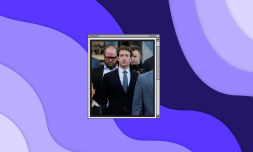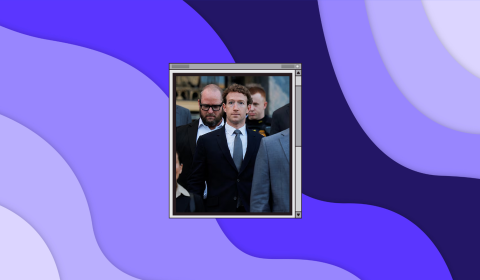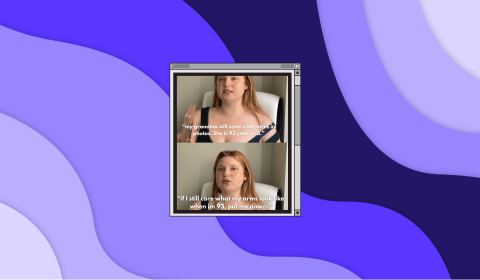AI is now everywhere, with ChatGPT boasting over 800 million weekly active users. It is disrupting our creative processes, speeding up productivity and causing controversy the world over. Given that young people are set to inherit this changing work environment, how do they feel about it all?
No matter who you ask, everyone has an opinion on AI.
When automated, prompt-based content generators initially launched, they were mostly gimmicky and rudimentary image creators. The very first iteration of DALL-E would produce quite basic, clunky files that were more comedic than they were useful. Hands looked off, eyes would be warped and disfigured, and the AI frequently got things wrong. It was all intriguing, sure, but nothing truly disruptive.
This was 2021. We were still knee-deep in Zuckerberg’s desperately lame Metaverse, which promised pointless augmented reality and awkward virtual meetups that presented no obvious benefits. NFTs were being shilled onto the masses by celebrities and crypto bros, companies were racing to compete with TikTok’s newfound popularity, and there was a shortage of computer chips the world over. It was a different time.
Fast forward to today, and AI has steadily etched its way into our working lives in a very real and unnerving way. ChatGPT, the most popular prompt-based platform that allows users to create images and text instantly, recently estimated that it has over 800 million weekly users. It also released new features in March that include a memory function for individual usage and refined image and video tools to better improve results.
There are now a plethora of AI tools to choose from. China has released its own competitor DeepSeek, Google has launched an automated service called Gemini, and Adobe has baked-in generation tools on well-established legacy platforms like Photoshop. Every startup under the sun is currently scrambling to interject AI into their sales pitches and investment decks, all hoping to entice stakeholders that are chasing the trend of automated content.
The positives of these new, innovative tools are undeniable. The ability to immediately generate text for contracts, websites, press releases and advertisements is nothing short of a miracle, and democratises the process in a genuinely new way. SMEs no longer necessarily need to cough up cash for decent copy and can save mountains of time by effectively utilising prompt-based tools. Similarly, creating original, unique images in moments can prevent companies from enduring image licensing headaches.
By that same token, aggressively cutting such massive corners in this way jeopardises the livelihoods of creatives, especially those on the smaller end of the scale. Many homegrown businesses will no longer commission artists and designers to produce a logo or advertising campaign, as ChatGPT can do it all for them in half an hour. As the technology improves, the distinction between human art and automated imagery becomes ever blurrier and more jobs become disrupted as a result.
Bands are using AI for album covers, game companies are churning out assets cheaply, and students are whipping up essays without having done anything themselves. The recent AI-generated Studio Ghibli images also demonstrated how problematic these tools can be when copyright and safeguarding laws are not properly in place or enforced. As useful and impressive as these tools can be, they don’t come without a massive caveat of ethical problems and moral dilemmas.
So, what do Gen Z think about all of this change? Given that most are now entering the workforce as junior employees, they are the ones who will have to adapt to AI the most as their careers progress forward. Understanding what the general consensus is can be difficult, as different studies tend to conclude different things.
What we do know is that young people are absolutely engaging with AI wherever possible, whether it’s to speed up video production, quickly create proposals or statements, or to simply provide baseline ideas to later spring from with human input. Students and young adults are far more eager to embrace the possibilities of AI and perceive its capabilities as a net positive compared to older employees who are accustomed to traditional ways of working.
Equally, though, some argue that Gen Z will need to keep up with the rapid changes within most sectors so as to not risk losing their jobs entirely. The Times talks to several bosses at various companies that grumble about the ‘demands’ of younger works (mental health days, active social lives, normal human things) and claim that ChatGPT can reproduce the results of entry-level jobs without all the awkward things like… salaries, empathy, and actual management.
It’s this potential skill gap that could make it harder for young people to jump from those initial, early jobs to more substantial positions. As Gen Xers and Boomers become able to effectively use ChatGPT, they’re far more likely to weaponise it against young people and make opportunities for career progression even harder. There isn’t really a clear-cut solution to this problem either, unless we simply create new jobs that better cater to the needs of AI.
This is already happening on websites like LinkedIn, where you’ll frequently find job vacancies for ‘AI Prompt Writers’ and ‘AI Content Generators.’ Listings such as these are expected to garner greater popularity as our commercial and creative processes fundamentally change.
Gen Z aren’t blind to these potential risks. While some are already effectively using AI to boost their entrepreneurial efforts and carve out their own career paths, many are asking for more information and education on how best to use AI. Recent research indicates that the average young person is sceptical about the effectiveness of AI on their critical thinking and creativity, but are still routinely using it and acknowledging how important it will be for their futures. Gen Z believe that AI is efficient and necessary, but tend to acknowledge that it may erode their own abilities over time.




















